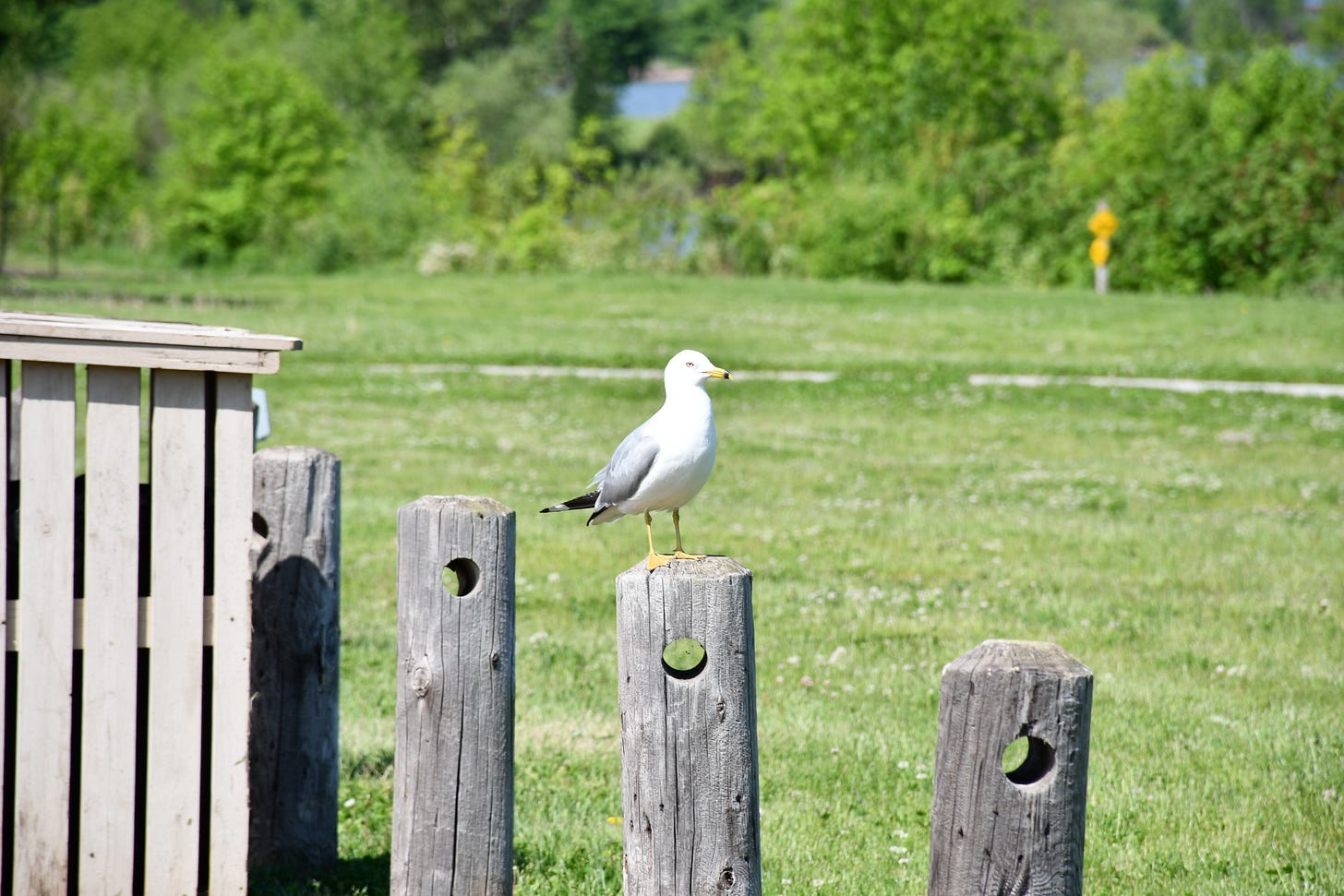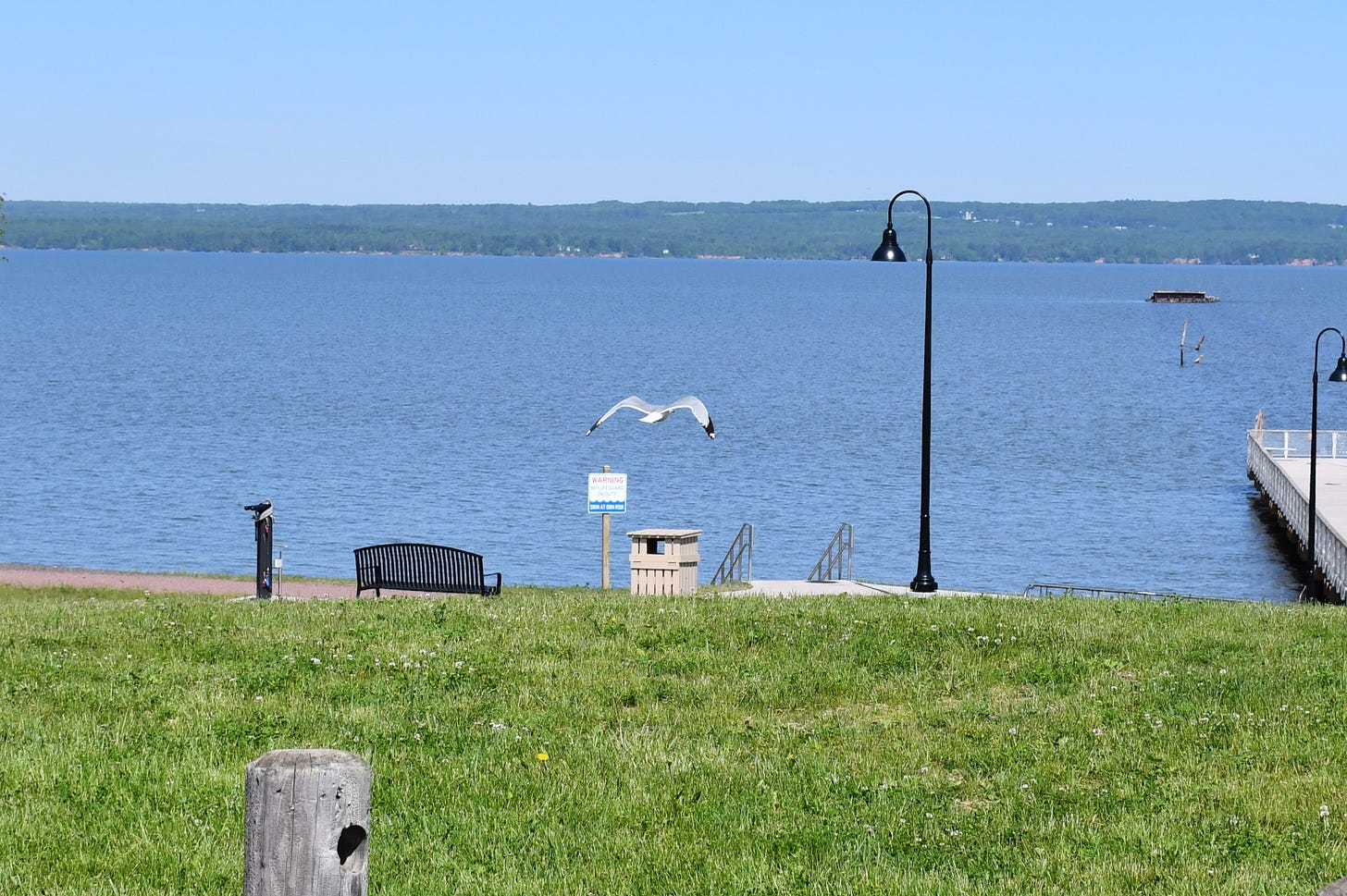The Cycle of Life
How often do you see people accuse those of us who actually fully comprehend the predicaments society faces of "giving up"? Why do people think we have "given up" just because we understand these predicaments? NONE of us has given up on anything that is worth pursuing - it is the false "solutions" which actually take society in the wrong direction that we have given up on. Those of us who understand the situation with trees, for instance, haven't given up on planting trees. We've simply given up on the IDEA that planting trees will have much effect on climate change. We still enjoy planting trees, we just no longer do it for the wrong reasons or think that by planting them that doing so justifies society's continued destruction of the environment. Likewise, we also know that purchasing "green" or "clean" or " renewable" devices such as solar panels or EVs will have little to no effect on climate change. If anything, their manufacture and transport only allows the continued destruction of the environment and one look at indigenous cultures proves that they are completely unnecessary for human survival and happiness.
How much have you considered the cycle of life? Something which gives the most relaxing and calm feelings regarding our collective set of predicaments is zooming out of our immediate surroundings and looking at the scenario from a deep, geologic timescale. It is easy to be brought to despair when looking at extinction from human timescales and viewpoints. Rather than visualizing this from a human perspective, I find it therapeutic to go outside of those frames of reference to see things from a neutral (or "more" neutral at least) perspective. David Fleming says it this way, quote: "Death as such is merely natural; its badness is a human overlay."
In the pictures above, one can see the progression of the seagull from standing on a post in Ashland, Wisconsin to flight over Lake Superior. Just like each cycle of life, each frame has its own beauty. Just like life itself, change is inevitable and the only true constant. Despite the fact that this bird is leaving, most only see the grace of flight. It serves as a metaphor for life; here today, gone tomorrow.
Realizing that "humans" have only been around for the last 2 million years or so and our specific species has only been here for about the last couple of hundred thousand years, spending time learning about our history and previous mass extinctions can transport one to a new realm into life cycles of the planet. All species go extinct. Some species last far longer on our planet than others. But sooner or later, each one gets snuffed out due to a variety of reasons, each one having to do with a significant portion of the life cycles here on Earth. Some plants and animals have rather small lifespans, existing for less than a year before perishing. Other animals and plants, like us, can live for many years sometimes existing for a century or more. Some organisms, such as very large trees (Redwood or Sequoia or Baobab) can live for a millennium or more. Some species can exist for millions of years; others quietly go extinct in far less time.
Perhaps it is my love of the mountains that inspires some of these deep thoughts regarding geological timescales upon which the foundation of life itself is based. How did we become "us" and how did we get here? I am certain that I asked highly annoying questions when I was young because many people didn't have the answers I was seeking (or they weren't willing to tell me if they did). Probably the most annoying question I consistently and constantly asked was, "Yeah, but WHY?" Of course, the most frequent answer to that one was, "Because I said so, that's why!" Sound familiar?
I'm still asking these questions and they have led me to some conclusions about things which can be both enlightening but also occasionally depressing. Learning about geologic timescales and extinction tends to be more of the former; learning about humans and society tends to be more of the latter. Learning about our lack of agency over so many different predicaments brought about my realization that we cannot effectively change WHO and WHAT we are as organisms and became the basis for my understanding that we have a rather limited means of addressing most of society's most pressing predicaments. Once one becomes aware of just HOW limited our collective ability to mitigate the issues we have caused is, it becomes less bothersome and more along the lines of how these things were always going to turn out this way.
This is not an easy conclusion to come to until one comprehends precisely how the system of civilization actually operates and that nobody is actually in charge. This makes it less troublesome, but it isn't until one actually comprehends that most so-called ideas to "solve" the "problems" of civilization actually counterintuitively take us in a direction opposite to what is desired that one realizes the true lack of agency we have. Most people also tend to look towards technology as a means to solve issues, but generally miss the fact that it has been technology use which brought said issues to be the huge predicaments they are today.
Coming back to the original topic, one is reminded that death is required in order for life to exist. In fact, this is the very nature of life itself; certain properties of life that many people view as "bad" properties (such as death) are required in order for the "good" properties to exist. In nature, there is no such thing as waste. Dead animals and plants become food or sustenance for the next generation of organisms. Plants convert animal "waste" products such as carbon dioxide and manure into oxygen and plant "waste" products (which we think of as food or other biomass), which animals consume and turn back into more manure and more carbon dioxide in a never-ending cycle of life and death. Extinction then, is nothing more than the final death for a particular species which nourishes the next generation and brings forth a new species to fulfill the particular ecological niche it once filled. The only thing that is guaranteed is change itself.
It is this newfound sense of what life truly is and that what we view as being truly magnificent (life itself) requires death and extinction in order to exist. Just like the annual seasons that are experienced every year, so too are the geological seasons which bring species forth from birth through the maturation process and eventually into death once said species either ceases to provide ecosystem services within the niche it is suited for or habitat for said species ceases to exist in one way or another. Sad though it may be, it is necessary for the evolution of life. Live and Love Now.




